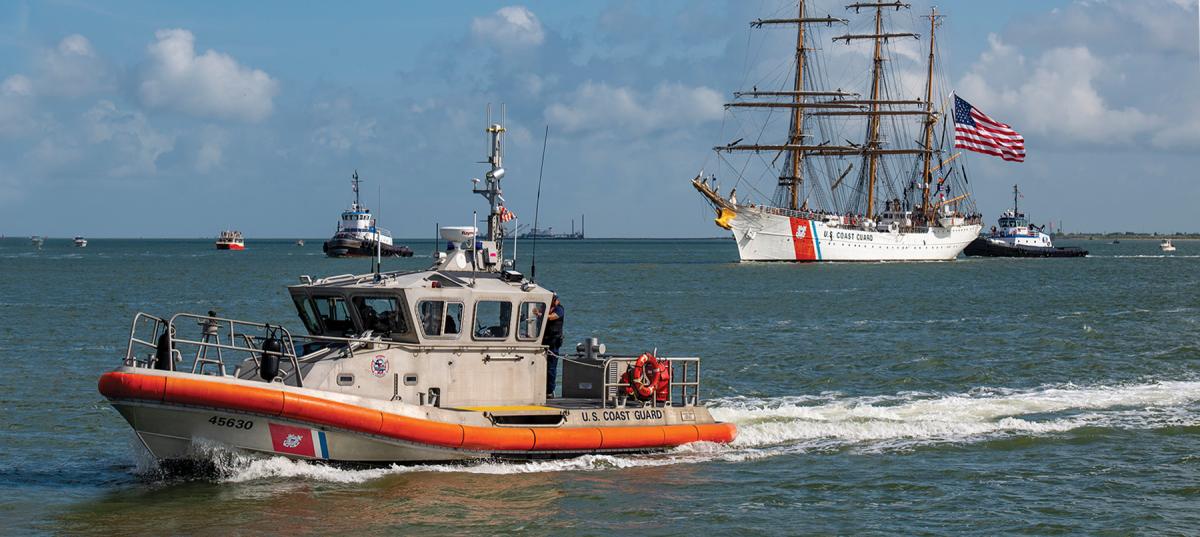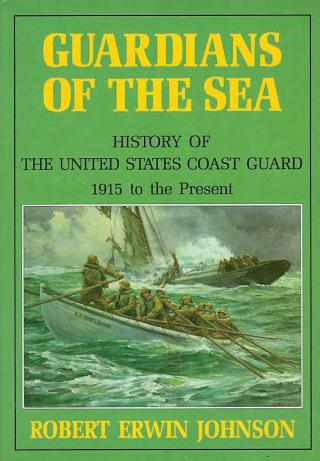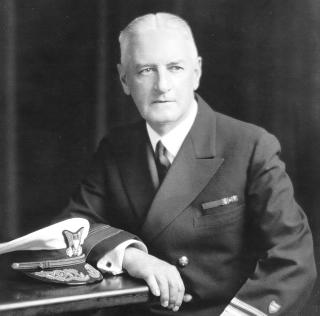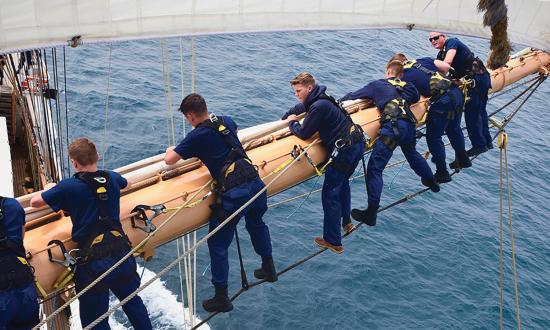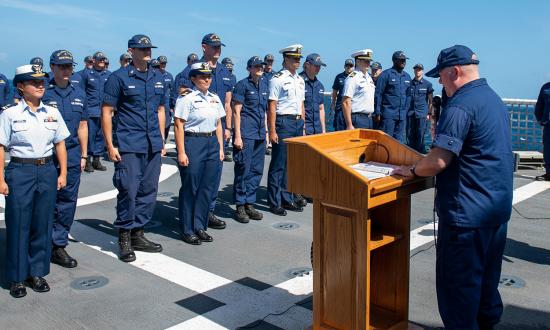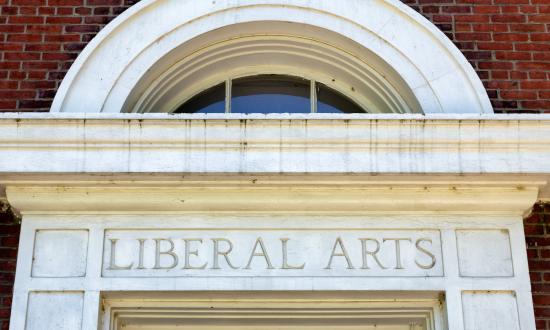William R. Wells II, a freelance historian and retired Coast Guard master chief petty officer, criticized the state of Coast Guard history in a 2019 essay. Of his many disparaging observations, one was particularly painful:
Without knowledge of the past, historical errors continue as operations become lost to organizational memory. . . . as long as the Coast Guard maintains its style of comfortable conformity little will change in the study, research, and writing of forthright Coast Guard history . . . [creating] a service with no self-knowledge beyond simplifications, false assumptions, and myths.
Wells’ conclusion was even more damning: “At present, no professional history exists to academically challenge, validate, create controversy, or develop a deeper understanding of the Coast Guard.”1 Are these criticisms justified? More important, will the systematic study of its history today make the Coast Guard more effective tomorrow? Or is it destined to remain lost at sea?
Definition and Purpose of History
History is the study of change over time, usually in chronological order and showing cause and effect. Studying history and applying its lessons is inherently valuable, especially to military leaders.2 Military historian and theorist Sir B. H. Liddell Hart accurately noted that history “provides us with the opportunity to profit by the stumbles and tumbles of our forerunners.” In a more recent study, Gordon Wood, a Pulitzer-Prize winning historian of early American history, wrote that “historical knowledge . . . gives people a perspective on what is possible, and, more often, what is not possible.”3
Studying History—or Not—at the Coast Guard Academy
From basic training to officer commissioning, the Coast Guard fails to critically study its rich history. By offering only a bare minimum of historical instruction, the service fails to instill the knowledge to analyze and avoid previous administrative, operational, and strategic mistakes. Most important, the service’s history, and for the most part, history in general, is not being taught at the U.S. Coast Guard Academy. The school does not offer a history major, nor does it have a history department—understandable for an academy with a small student body whose curriculum emphasizes science and technology. Nonetheless, the core curriculum does not include history courses. In fact, only three, three-credit history electives are offered: Modern European Civilization, World Civilizations, and The Civil War Era. In 2012, Vice Admiral Jim Hull (retired), chairman of the Foundation for Coast Guard History, was convinced that his alma mater would soon begin offering service-specific history courses after summits with the Academy superintendent and the Coast Guard Commandant:
I was invited to . . . two meetings to discuss the development of Coast Guard History courses as part of the curriculum . . . It is anticipated that an elective will first be offered as part of the Government major to be followed by other course developments.4
A decade later, little has changed. To make matters worse, that “new” course, titled “History of the U.S. Coast Guard,” currently is taught during the stressful “Swab Summer” (cadet basic training) by junior officers, not history professors. According to the Academy’s Catalogue of Courses 2020–2021, this one-credit course is:
Designed to introduce Fourth Class cadets to the rich history and remarkable achievements of the U.S. Coast Guard Academy, while familiarizing students with the historical underpinnings of the Coast Guard missions and the Academy . . . Successful completion of the course (earning an academic grade of D or better) is not a requirement for graduation.
In other words, the course is mandatory, but students can fail it and still graduate.5 What message does this send to the Coast Guard’s future leaders about the significance of their service’s heritage, or the importance of history in general? In comparison, robust history curricula are important slices of the cadet/midshipmen core and elective courses at West Point, the U.S. Naval Academy, and the U.S. Air Force Academy. Even the U.S. Merchant Marine Academy—the Coast Guard Academy’s closest peer—mandates that its midshipmen take and pass two history courses—including History of Sea Power—as a graduation requirement.6
Other Coast Guard Schools
Located on the Coast Guard Academy grounds is the service’s officer candidate school (OCS), which provides one afternoon when students receive a docent-led tour of the Coast Guard Academy Museum. This is the extent of the OCS history training.
Enlisted recruits undergoing basic training at Cape May, New Jersey, fare even worse. They are provided with a one-page summation of their service’s heritage in the Recruit Training Pocket Guide and given a 45-minute class on Coast Guard history in the middle of the eight-week training program.7 This is hardly a basis to build a strong foundation. Providing historical context in their training would make recruits more aware of their own role in U.S. national goals and security and could deepen their resolve to push through difficult times by employing lessons from previous generations.8
To compound the problem, any follow-on training is largely devoid of historical context and analysis. Coast Guard “C” schools (advanced, technical training for enlisted and Coastguardsmen) rarely include history in their programs, and those that do only give a token nod to Coast Guard or program-specific history. An example is the Marine Inspector Course, the foundational training for vessel safety inspectors. Unfortunately, the history aspect of the curriculum is a one-page timeline spanning two centuries of marine safety events.9 This brief summation fails to impress on students the significance of programmatic turning points and leaves no time for how these lessons can be applied to modern missions.
The Absence of History in Leadership Instruction
Officer leadership training, such as the Civilian Transition and Mid-grade Officer courses and Senior Leadership Transition Course, have no Coast Guard history in their curricula. The same is true for enlisted leadership training, such as Leadership and Management School, while the seminal leadership-training course for enlisted personnel—the Chief Petty Officer’s Academy—has only a brief history of the Academy on its website, with nothing built into the curriculum.10
As a comparison, history is a prominent part of other service schools, such as the Army’s Command and General Staff College, where the history faculty’s stated goal is to help students understand that “the study of military history can inform professional decision-making, and develop critical thinking and problem-solving skills.”11 The use of history is crucial to ensuring the Coast Guard moves forward with astute and perceptive leaders capable and ready to solve complex problems.
The Coast Guard Historian’s Office
Senior Coast Guard leaders also have not demonstrated a commitment to the service’s institutional history. The Coast Guard Historian’s Office in Washington, D.C., is grossly understaffed. Retired Coast Guard Lieutenant Commander Tom Beard argued more than 20 years ago that assessing, archiving, preserving, and historically interpreting Coast Guard documents and artifacts on a bare-bones budget was untenable.12 This situation persists even after a 2015 Coast Guard report to Congress noted the existence of more than 140 unique, historical-research gaps across nine subject areas covering more than two centuries of the service’s history.13
Today, the Historian’s Office consists of a chief historian, deputy historian, assistant historian, and one archivist who manages more than 5,000 archival boxes of material. In addition, the Pacific and Atlantic Area commands are authorized one historian each; the Academy’s museum is authorized a curator; and a museum-storage facility is authorized a curator and a collections manager.14 In recent years, volunteers from the Coast Guard Auxiliary’s History Division have assisted the Historian’s Office in several important projects, but the scope of their work is limited.
In contrast, Naval History and Heritage Command has more than a hundred staff members who manage numerous museums, artifact-loan programs, publications, underwater-wreck research, and an operational archive.15 The Army’s historical staff alone numbers more than 300 people, while the Air Force has nearly eclipsed that number.16
Independent Research
The commitment by the Navy and other services to preserve and interpret their history has led to a plethora of independent research efforts and publications. Conversely, independent research into Coast Guard history is at a standstill, with the last signature history of the organization published in 1987—Robert E. Johnson’s Guardians of the Sea: History of the United States Coast Guard, 1915 to the Present (Annapolis, MD: Naval Institute Press, 1987). Furthermore, discussions to build a National Coast Guard Museum have gone on for more than two decades, and the project still has not come to fruition. Recent federal funding has given it a boost, however, and an anticipated opening has been set for 2025.17 The Coast Guard does itself a disservice by failing to promote its numerous contributions to the nation. This fails to generate forward momentum for funding, initiatives, and growth.
Looking Forward
In 1938, Vice Admiral Harry Hamlet authored the “Creed of the United States Coast Guardsman.” The first two lines venerate earlier members of the service who dedicated their lives to save others and serve the nation:
I am proud to be a United States Coast Guardsman. I revere that long line of expert seamen who by their devotion to duty and sacrifice of self have made it possible for me to be a member of a service honored and respected, in peace and in war, throughout the world.
Those words inspired the long career of Captain Robert Desh. Now retired and a board member of the Foundation for Coast Guard History, he recently reflected on their meaning:
The entire Creed is profound and important, but Admiral Hamlet obviously knew these first two lines were the foundation. It is impossible to “revere that long line of expert seamen” if one doesn’t truly understand the events and accomplishments that illustrate “their devotion to duty and sacrifice of self.”18
The Coast Guard is failing to teach its personnel the importance of its own heritage. Likewise, it is not fully promoting its numerous historic accomplishments to the public, which handicaps future organizational growth by failing to impress on policy makers and taxpayers the significance of the service’s past and present contributions to the nation. Just as important, the Coast Guard is not instilling the study of historical analysis in its decision-making processes, which would sharpen the skills of its junior and senior leaders.
To foster pride in its heritage and promote its historic accomplishments to the public, the Coast Guard cannot continue to ignore its past. It must make a major shift in how it approaches, teaches, promotes, and preserves its history. The Coast Guard must rescue the history and heritage of “that long line of expert seamen” and their contributions to the nation, so they are no longer lost at sea.
1. William R. Wells II, “The Invisibility of Repetition: Coast Guard History,” 2019, 14, www.academia.edu/40005245/The_Invisibility_of_Repetition_Coast_Guard_History.
2. See Maurice Matloff, “The Nature of History,” in John E. Jessup, Jr. and Robert W. Coakley, eds., A Guide to the Study and Use of Military History (Washington, DC: GPO, 1978), 4.
3. B. H. Liddell Hart, Why Don’t We Learn from History? (London: Allen & Unwin, 1946), 16; Gordon Wood, The Purpose of the Past: Reflections on the Uses of History (New York: Penguin Press, 2008), 72–73.
4. VADM James Hull (Ret.), USCG, “From the Chairman,” in The Cutter: The Newsletter of the Foundation for Coast Guard History 35 (winter, 2012), 2. Core courses are mandatory courses and must be passed for a student to graduate.
5. U.S. Coast Guard Academy, Catalogue of Courses 2020–2021, 26, 28, 45; and Dr. Richard Zuczek, Chairman, Humanities Department, U.S. Coast Guard Academy, email to Mark Snell, 20 April 2022.
6. U.S. Military Academy West Point, “History;” U.S. Naval Academy, “History Department,” www.usna.edu/History/index.php; U.S. Air Force Academy, “History;” and the core history requirements at the U.S. Merchant Marine Academy, “Humanities.”
7. Training Center Cape May, Recruit Training Pocket Guide, U.S. Coast Guard, revised October 2018, 3.
8. Simone R. Johnson, “The Top 10 Most and Least Stressful Jobs,” Business News Daily, 16 December 2021.
9. Marine Inspector Course Student Notes, 2011, Class A-1. Possession of Chris Booth.
10. U. S. Coast Guard, “Chief Petty Officer Academy,” www.forcecom.uscg.mil/Our-Organization/FORCECOM-UNITS/TraCen-Petaluma/Training/CPOA/msclkid/c50fbd9fc0d411eca7c67cfdcc814335/.
11. Bradley L. Carter, “Teaching Military History to Those Who Make It,” Perspectives on History: The News Magazine of the American Historical Association, 1 January 2013.
12. Tom Beard, “Semper Paratus, Simply Forgotus,” Coast Guard Alumni Association Bulletin, June 2001.
13. Department of Homeland Security, Report to Congress on Gaps in U.S. Coast Guard History, 21 September 2015. The nine subject areas are: operational history; broad overall historical topics; organizational history; force provision history; history of technology and its impact on the Coast Guard; history of famous cutters; unit histories; collective and comparative biographies; and biographies.
14. U.S. Coast Guard Historian’s Office, “Staff Directory,” U.S. Coast Guard, www.history.uscg.mil/contact-us/directory.
15. U.S. Naval History and Heritage Command, Naval History and Heritage Command Guide, U.S. Navy, www.history.navy.mil/content/dam/nhhc/about-us/contact/NHHC%20Guide-508.pdf.
16. The U.S. Army’s history program includes the Center of Military History in Washington, DC; the Army Heritage and Education Center in Carlisle, PA; and the National Museum of the United States Army at Fort Belvoir, VA. In addition, all the Army’s major commands have historical staffs, and many of the garrisons and service schools have their own museums, such as West Point, NY; Fort Lee, VA; Fort Eustis, VA; Fort Leonard Wood, MO; Fort Shafter, HI: etc. The Air Force and Marine Corps have counterpart organizations and base museums, and both have exceptional national museums.
17. Though groundbreaking was scheduled for the end of June 2022, with an opening planned for 2025 at the earliest, the project has since been delayed. See, “A Group Has Raised More Than $56 Million for a National Coast Guard Museum,” The Day, 20 January 2020, and “New London Celebrates Funding for National Coast Guard Museum,” 25 March 2022.
18. Robert Desh, email to Mark Snell, 8 April 2022.



